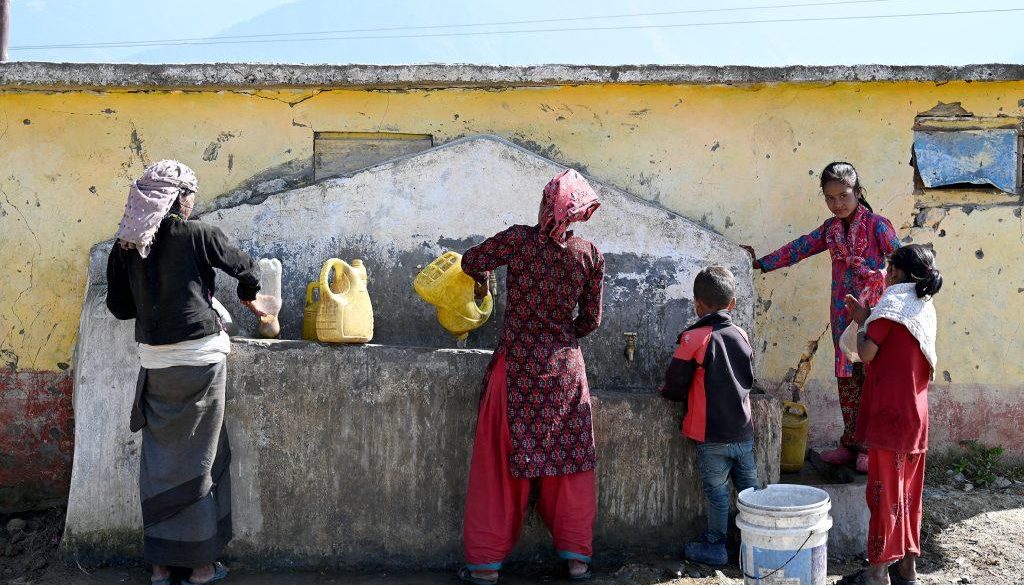During the next month, 10 stories will be shared from individuals living in 3 of the communities that SUSWA will work in: Raduneta in Palata, Kalikot; Maangri i Mugum Karmarong, Mugu; and Bankhi in Hima, Jumla.
The personal stories allow a glimpse into lives and communities in Karnali experiencing change, for example, in regards to the construction of WASH facilities, as well as frustrations with continued issues of water scarcity due to depleting sources, disasters and functionality and maintenance issues. The stories highlight how these issues are part of what shapes the life of people living in the region, impacting daily life and sanitation and hygiene practices.
The stories have been collected and the photographs taken by Stories of Nepal at the end of the inception phase of the SUSWA project in 2022. The stories can therefore be seen to represent a background, a starting point or baseline for the project in these communities.
Karnali is the largest province of Nepal. With a predominantly hilly and mountainous geography it has the lowest population density of all provinces, and is also the least developed province measured by the most common development indices. In Karnali, there are around 200,000 rural people who are without water supply and about 250,000 people who have no technically acceptable water supply in Karnali. Water insufficiency is another issue realized by most of the people throughout the region. The situation is likely to get worse due to climate change, which is expected to further impact water availability.
Water and sanitation are human rights. Everyone has the right to water and sanitation services that are physically accessible in or nearby their household, workplace and educational or health institutions. The Government of Nepal has prioritized water supply service level upgrading and is committed to pursuing and achieving SDGs by 2030 including those relevant to water supply, sanitation, and hygiene (WASH): 6.1 – universal and equitable access to safe and affordable drinking water for all, and 6.2 – access to adequate and equitable sanitation and hygiene for all and end open defecation, paying special attention to the needs of women and girls and those in vulnerable situations.
Deeply rooted discriminatory cultures and practices (based on gender, caste, disability, economic status, etc.) are among the explaining factors for the issues with access. Functionality problems of water supply schemes in Karnali are higher than in other provinces: 41% of schemes in Karnali need major repair, rehabilitation, or reconstruction with more than half of households in Karnali* dependent on water systems suffering from functionality issues. The shortcomings are typically in water quality, scarcity of water due to depleting sources, damage of structures caused by natural hazards, poor operation and maintenance (O&M) skills and lack of funds, increasing water demand when old community taps have been replaced by private taps etc. Besides disparity in access and inequality, ensuring quality, functionality, and sustainability of WASH services has become a serious challenge for achieving SDG 6 by 2030.
These issues related to WASH can be found in the stories shared by those living in communities across Karnali, from Raduneta in Palata, Kalikot to Maangri i Mugum Karmaron, Mugu as well as in Bankhi in Hima, Jumla, impacting individual lives in different ways. The stories also share themes of resistance; of adaptation and of coming up with solutions, and above all, a will to work for a future where WASH services are sustainable and accessible for all.
——
Jay Poudyal, the photographer behind Stories of Nepal has traveled across Nepal and collected stories for a decade, which he shares on his website, Facebook and Instagram, bringing the words and voices of those living in remote areas for all to hear.
These Stories were created and maintained with the financial support of the European Union, the Ministry for Foreign Affairs of Finland and the Government of Nepal. Its contents are the sole responsibility of SUSWA and Stories of Nepal, and do not necessarily reflect the views of the European Union, the Ministry for Foreign Affairs of Finland or the Government of Nepal. The project is implemented with technical support from Niras Finland. #StoriesofWASH
*In 42 municipalities where the SUSWA project will be implemented







